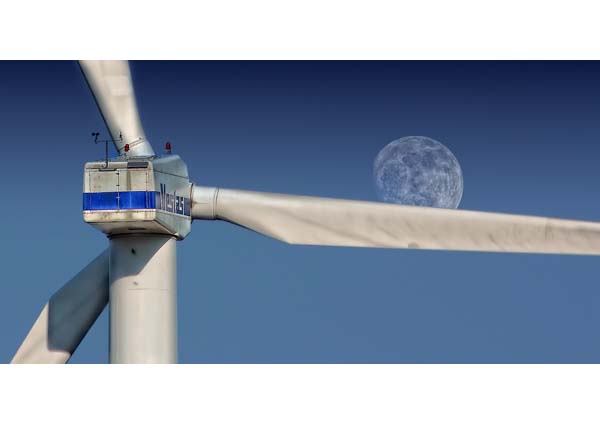Despite studies which show that most Americans in every state support the United States’ participation in the Paris Climate Accord (an agreement within the United Nations Framework Convention dealing with greenhouse gas emissions mitigation, adaptation and finance starting in the year 2020), on June 1 of this year, President Donald Trump made a statement withdrawing the U.S. from the agreement. The U.S. now joins the only two other countries that did not sign the agreement: Syria and Nicaragua.
In his speech announcing the decision to withdraw, President Trump stated, “The Paris Climate Accord is simply the latest example of Washington entering into an agreement that disadvantages the United States to the exclusive benefit of other countries, leaving American workers…and taxpayers to absorb the cost in terms of lost jobs, lower wages, shuttered factories, and vastly diminished economic production.” The assumptions of this statement, based upon a flawed report from May 2017 according to PolitiFact.com, have been widely debated.
The Coal Industry
The “lost jobs” and “shuttered factories” to which the president was referring are related to the coal industry, which has been diminishing through the years. The 2016 International Energy Outlook Report by the Energy Information Administration (EIA) projected that “Coal is the world’s slowest growing form of energy,” increasing at an average rate of 0.6 percent per year by 2040. As of March 2017, the U.S. Bureau of Labor Statistics reported that there are about 53 thousand Americans working coal mining jobs, while there are at least 4 million American jobs in renewable energy according to the Environmental Defense Fund (EDF). A recent study by the EDF stated that “Solar and wind jobs have grown at rates of about 20 percent annually in recent years and are each creating jobs at a rate 12 times faster than that of the rest of the U.S. economy.” So, yes, the coal industry is slowing down, and coal jobs are being lost, but many more jobs are being created in their place in the form of renewable energy.
Renewable Electricity or Fossil Fuels
Although fossil fuels continue to lead the world as the number-one source of energy, Ren21 states that the amount of electricity produced through renewable resources around the world increased by nearly nine percent in 2016; 47 percent of this growth was due to solar power, and 34 percent was from wind energy.
“For the fifth consecutive year,” stated the report, “investment in new renewable power capacity…was roughly double the investment in fossil fuel generating capacity…The world now adds more renewable power capacity annually than it adds in net new capacity from all fossil fuels combined.” Although investments in renewable energy outrank fossil fuels, these investments in renewable power have decreased by 23 percent since 2015.
As fossil fuels and nuclear energy are being overlooked in favor of renewable energy, China has become the largest investor in renewable power, providing the U.S. with potential business opportunities.
Changes Not Happening Fast Enough
2016 was the third consecutive year that the “global energy-related CO2 Emissions from fossil fuels and industry remained stable, despite a 3 percent growth in the global economy and an increased demand for energy,” according to Ren21. However, changes in energy sources for heating, cooling and transportation are simply not happening fast enough.
In 2016, heating and cooling accounted for over 50 percent of the world’s energy usage with renewable power providing only 25 percent of this power. While transportation utilizes “oil products account[ing] for around 93 percent of final energy consumption.” Ren21 cites subsidies as the main reason for the continued reliance on fossil fuels and nuclear power in these areas.
Looking Forward
Each year, these global trends continue to tilt in favor of renewables, which is the future of the world and the future of America. As coal jobs diminish and move towards safer automation, America should join the world in its quest for sustainability through of renewable energy. Global warming is not an ignorable issue.
Shelby Rainford is a senior professional writing major at Blackburn College with a minor in computer science. She strives to lead a sustainable lifestyle and, through her writing, hopes to inspire others to do the same. In her free time, Shelby enjoys reading, knitting and exercising.
Information from the Arizona Energy Information Administration by the EIA:
- “Energy” and “electricity” are often used interchangeably even though “energy” is a blanket term which covers electricity, transportation and heating and cooling, according to the global renewable energy policy network (Ren21).
- By 2025, Arizona’s Renewable Environmental Standards require that 15% of Arizona’s electricity come from renewable resources (EIA).
- The myth that fossil fuels and nuclear energy are needed as “baseload” electricity has been proven false by countries like Germany and Denmark (Ren21).
- In 2016, 48 nations committed achieving 100% of their electricity renewably (Ren21).
- In 2015, renewable resources were responsible for 9.5% utility-scale electricity generation (EIA).
See more energy sector articles at greenlivingaz.com/energysector.






